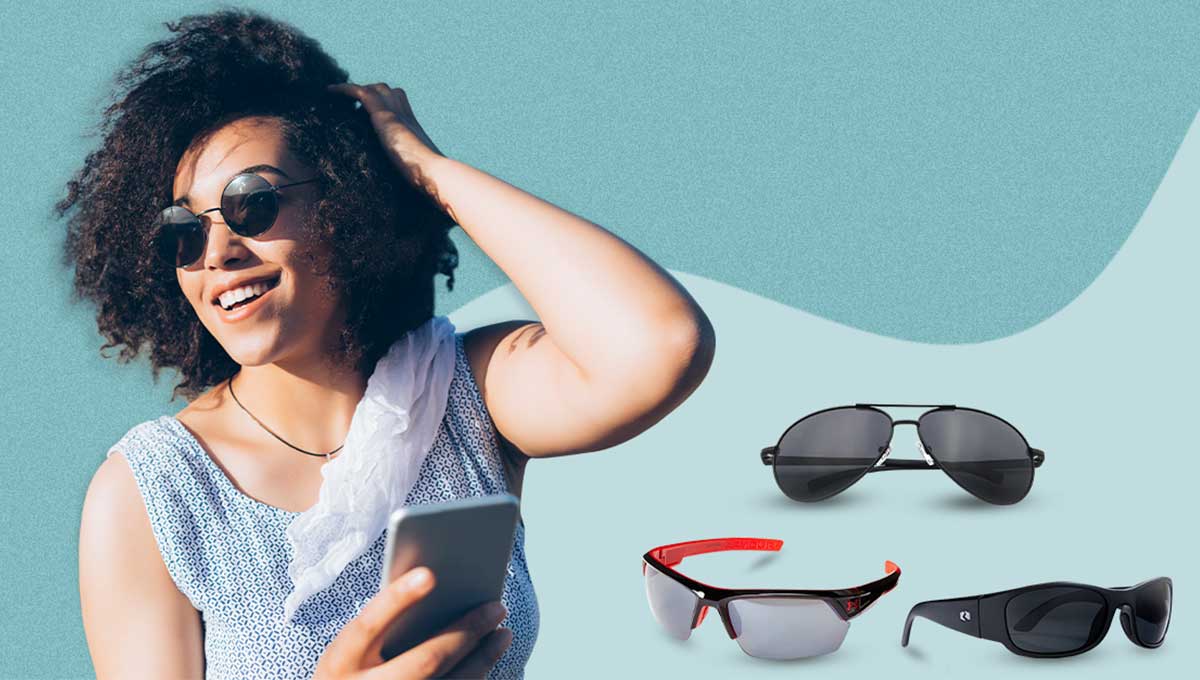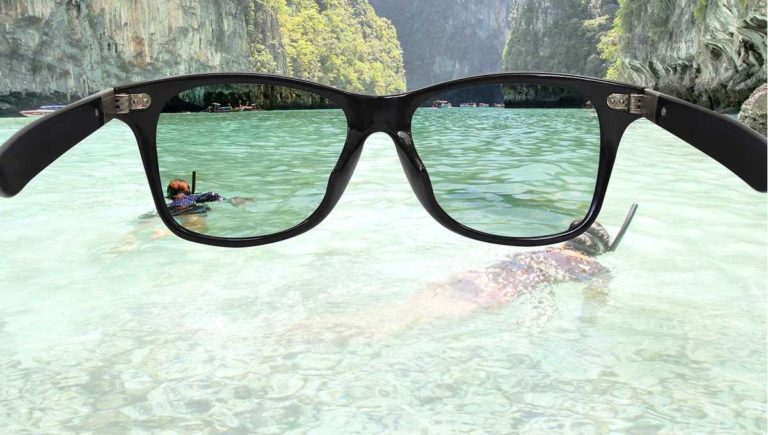Are you in the market for a new pair of sunglasses?
As summer approaches, finding yourself a pair of sunglasses becomes paramount to protect your eyes from the harmful effects of UV light. Not only do these protect your eyes, but they can also be an accessory that can help complete your look. Because of how sunglasses degrade while in storage, the best idea may be to go looking for a new pair altogether.
While looking for a new pair to use, you may have noticed an option for polarized lenses. Polarized sunglasses have become more popular nowadays, emerging as the fastest-growing segment in the eyewear industry.
Why is this the case, though? Why do more people buy polarized sunglasses now than before? To learn the answers to those questions, read what we've prepared below and learn all you need to know about polarized lenses.
What Are Polarized Sunglasses?
Light often scatters upon hitting an object, dispersing enough light for us to see what's around us. However, when it hits a stationary object that doesn't absorb it, it will only bounce in one direction.
This is what causes glare. Depending on the light's intensity, it can be a minor inconvenience. If it's stronger, though, it can be harmful to your eyes.
Polarized sunglasses have a type of lens that reduces light glare from different sources. This works well to your benefit during sunny days, as the intense light that may harm your eyes gets reduced as they pass through the polarized lens. Non-polarized lenses don't reduce as well as polarized lenses do, which means some glares may still hurt your eyes, even through tinted lenses.
What makes polarized sunglasses different from regular sunglasses is how they interact with light. Non-polarized sunglasses only reduce the intensity of the glare. This means that, while it may not be as intense, you won't be able to see what's beyond the glare.
Polarized sunglasses, on the other hand, eliminate harsh light that passes through them. This means you'll get to see what's beyond the glare. This is useful when staring at still water, calm sheets of snow, or on glass.
What's so good about them, you ask? Considering that they remove harsh light before it reaches your eyes, these lenses do wonders in preventing eye strain.
Are They More Expensive Than Regular Sunglasses?
You can expect these sunglasses to be much more expensive than regular ones. On average, polarized lenses can cost $120 up to $180. It's quite a hefty amount, but it's always worth the investment.
Consider the benefits that you can get from switching to polarized lenses. The reduced eye strain you get from that alone is worth the cost. The protection from harsh light is also valuable as it can prevent further ocular damage.
They're also a much better option considering what you have to go through if your eye health degenerates further. Laser eye surgery alone can cost $500 per eye at the minimum.
What's great is that you can have different lenses polarized even without a prescription. This means you can wear polarized lenses with any frame that you want to wear.
With a prescription, though, you can take advantage of vision insurance to cover the costs of polarization. This is a useful option if you're short on funds.
How Do Polarized Lenses Work?
How do these types of sunglasses work? It's all thanks to a special chemical film that covers the lenses. The chemical often comprises of uniform molecules that align parallel with one another.
Because of their alignment, they only allow light that passes through them from a certain direction. In the case of polarized sunglasses, they only allow vertical light to pass through. All horizontal light gets blocked off, which is what glare is.
To better visualize this, imagine the lenses were window blinds, instead. They prevent all but a few bits of light to pass through their gaps. This prevents harsh light from reaching your eyes while providing enough light so it won't be too dark while wearing them.
However, it does mean that light levels get reduced while wearing them. Surroundings can appear darker than they really are. While the change may come across as alarming at first, this helps in reducing eye strain through prolonged use.
How will you be able to tell if you have polarized lenses, though? One way to ensure this is by buying your sunglasses from a pharmacy or such. If you're buying polarized sunglasses online, though, there are only a few ways to tell.
An easy way to do so is by tilting the glasses so you look at the lenses at a 90-degree angle. If they're polarized, then you will see nothing but a reflection of what you're pointing the lenses at.
You can also tell by wearing them and looking at an LED screen. The screen should appear darker if you have polarized lenses on. If they're not polarized, then there should be no change when you look at the screen.
Polarized Lenses Vs. UV Protection
What most people don't know is that polarized lenses don't offer complete UV protection. To learn about how the effects compare to each other, here's a quick guide:
Polarized Lenses
As mentioned above, polarized lenses prevent harsh light from damaging your eyes. It does well in reducing the brightness of incoming light, but it doesn't provide as much UV protection as you may think. This is because UV travels alongside all light.
This means that the light that passes through the lens still carries a modicum of UV that can affect your eyes. This can present a slew of health problems, like cataracts and temporary blindness.
UV Protection
UV protection is different from the protection that polarized lenses offer. Glasses that feature UV protection can block 99% to 100% of ultraviolet rays while you're outside. This helps in reducing the damage to the eyes and also prevents the effects of short-term UV exposure.
The drawback is that it doesn't protect you from glare at all. This means your eyes are still in danger of damage and degeneration.
Can I Have Both Polarized Lenses and UV Protection?
Because of their inherent differences, you may think that it's impossible to get both protective features. What's great is that you can buy polarized sunglasses that offer both. You only need to read the tags on the glasses to find out if they offer both.
If you're buying polarized sunglasses online, you can read the product description to see if they offer such features. Make sure that they provide UVA and UVB protection to ensure your money's worth. All features together will mean you can take care of your eyes easily while you're outside.
Are Polarized Sunglasses Better Than Regular Sunglasses?
By all means, polarized sunglasses are much better than regular ones. As mentioned above, they prevent eye strains even when you spend most of your time outside on a sunny day. This improves visual comfort, allowing you to do more outdoor activities under the sun.
Among the most notable ones is fishing. The reduced glare that polarized sunglasses give allows you to see what's below the water.
It can also improve your daytime driving, as it reduces the glare reflected by different elements. The windshields of other cars, wet roads, and even your own car's hood can produce glare. These sunglasses prevent these from affecting your performance, allowing you to drive safer.
The darkened visuals also allow you to have a truer perception of colors, as well. With the absorption of horizontal light, you can avoid over-exposure to different elements. This helps in preventing eye fatigue, which can lead to headaches and migraines.
What Are The Disadvantages Of Polarized Sunglasses?
Polarized sunglasses aren't the perfect eyewear. They still have a lot of issues that can make certain tasks inconvenient for you. For one, they make it harder for you to view LCD screens.
This is a problem nowadays since most electronic devices display their content through LCD screens. Phones, televisions, and even ATMs will be harder for you to read.
It will also be harder for you to distinguish between different white colors. With different elements darkened by the polarized lenses, you'll perceive different outdoor elements differently. White colors will often blend together, which can prove disastrous in some cases.
For example, you may not be able to differentiate the snow from an icy road. It can cause car accidents if you're not careful.
These sunglasses also have issues with durability. Some sunglasses aren't made with a chemical film, but with plastic lining, instead. These types of sunglasses may have their films peel off over time.
High exposure levels may also cause the chemical films to fade along the line. This can lessen the protection you get from polarized sunglasses.
Grab Yourself a Pair of Polarized Sunglasses Today!
Polarized sunglasses prove to be the better choice when looking for eyewear to sport in the summer. Learn all you need to know about these lenses above and know why they're important for your eye health. Pick out the best polarized sunglasses and improve vision quality today!
Wondering if polarized lenses can be deductible from your health insurance plan? Contact us here and we'll get in touch with you as soon as possible! We'll answer your questions and help you through whatever problem you may have!




